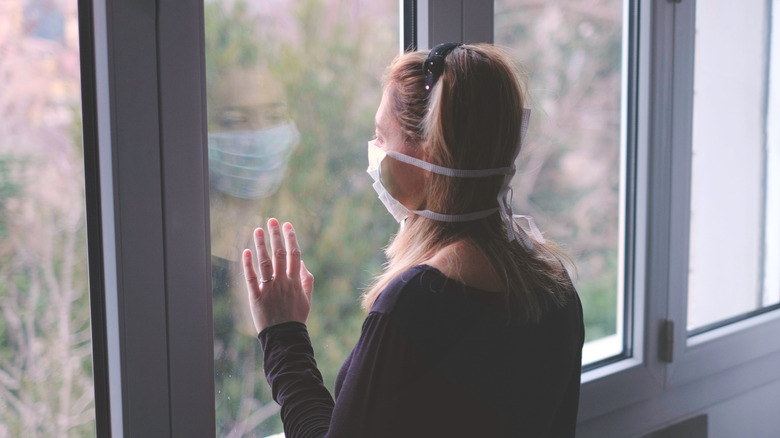Hypochondriasis, also known as health anxiety or illness anxiety disorder, is a mental health condition characterized by excessive worry about having a serious illness (via the Cleveland Clinic). People with hypochondriasis (or hypochondria) may have a preoccupation with their health even after a physical examination finds no sign of illness. According to Mayo Clinic, they may also experience physical symptoms, such as fatigue, that they believe are caused by a serious illness — even when there is no medical evidence to support this belief.
Other symptoms of hypochondriasis may include a preoccupation with bodily functions and sensations, seeking multiple medical opinions and undergoing numerous medical tests, difficulty accepting reassurance from healthcare providers that they are healthy, and avoiding activities or situations that may trigger anxiety about illness (via the Mayo Clinic).
Hypochondriasis can cause significant distress and interfere with daily functioning. If you feel you have this condition, it is important to seek treatment from a mental healthcare provider. They can help you manage health anxiety and improve your quality of life.
Causes of hypochondriasis

According to Healthline, the exact cause of hypochondriasis isn’t fully understood. It’s thought to be influenced by genetic, psychological, and educational factors. According to the Cleveland Clinic, people with a family history of anxiety or other mental health conditions may be more likely to develop hypochondriasis. Psychological factors, such as negative life events or a history of abuse, past illness, or trauma may be more vulnerable to developing health anxiety, explains the clinic.
Lifestyle factors may also play a role in the development of hypochondriasis, says the clinic. For example, people who have a high level of exposure to health-related information, either through the media or through their occupation, may be more likely to develop health anxiety (via Healthline). On the other hand, some other people might have a poor understanding of bodily sensations and diseases.
It is important to note that not everyone with hypochondriasis will have all of these risk factors. It’s best to speak to your doctor or therapist for proper diagnosis and treatment.
How is hypochondriasis treated?

Treatment of hypochondriasis can involve therapy, medications or a combination of both. Therapy is an important part of treatment for hypochondriasis. Cognitive-behavioral therapy (CBT) is often used to treat health anxiety (via Healthline). CBT helps you identify and modify behaviors and negative thought patterns that cause anxiety. It may also involve exposure therapy or behavioral stress management, with the goal of helping you learn to manage anxiety in a healthy way. Other helpful therapies include relaxation techniques (such as deep breathing and progressive muscle relaxation) and stress management techniques (such as exercise and meditation), per Mayo Clinic.
The medications used to treat hypochondriasis may include selective serotonin reuptake inhibitors (SSRIs). These medications are commonly used to treat anxiety and depression.
It is important for individuals with hypochondriasis to work closely with a mental healthcare provider to develop a treatment plan that is right for them. With appropriate treatment, most people with hypochondriasis can significantly reduce their anxiety and improve their quality of life.




